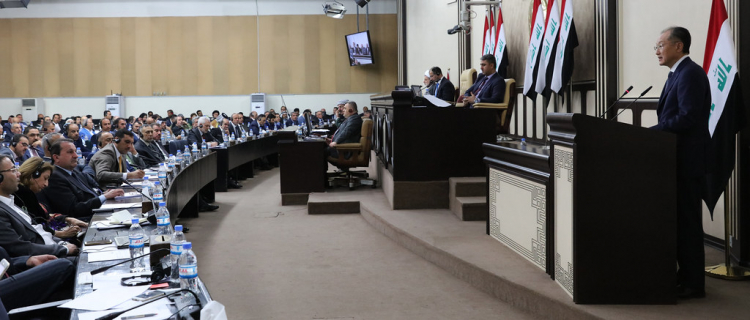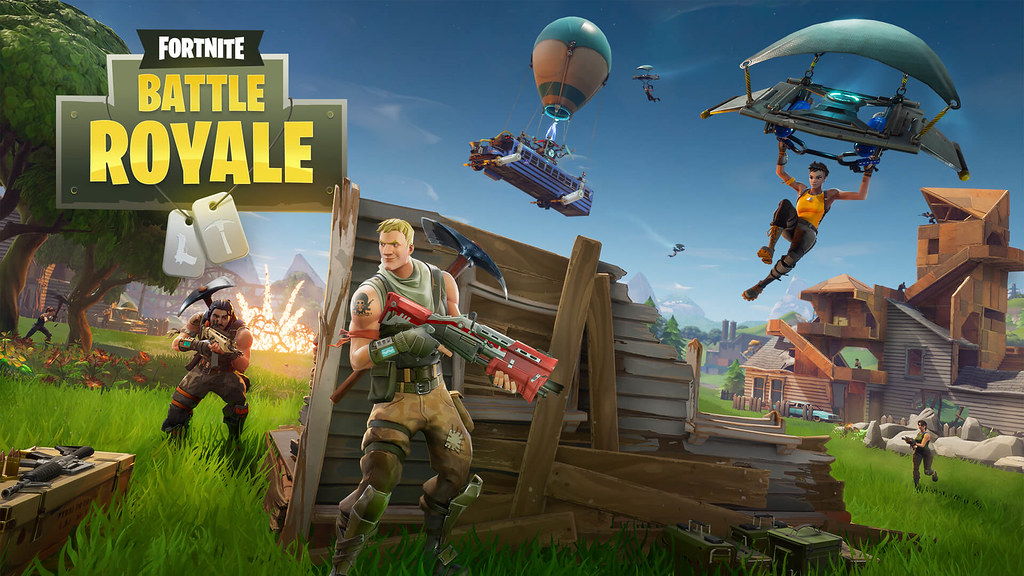Iraqi Parliament Votes to Ban Pubg, Fortnite, and Other Similar Video Games

The Iraqi Parliament voted on April 17th to ban "online multiplayer video games." The draft law, submitted by parliament's cultural committee the previous Saturday, singled out PlayerUnknown’s Battlegrounds and Fortnite in particular as offenders against "Iraq's society." The head of the committee, Samaa Gulab, explained the reasoning behind the submission of the law, attacking the massive influence the video games have had, saying that they "ignite violence among children and youth," something viewed as detrimental to a country that has seen so much war and violence in recent years.

The banning of PUBG and games like it is not something alien to Iraqi politics entirely. Anbar, one of the most heavily-affected Iraqi provinces, banned provincial employees in December of last year from playing the game in government facilities or be under the threat of dismissal.
The bill in the Iraqi Parliament, while a complete roll call of the 329 members has not been made available, was still unanimous among those present for the vote. The move to ban the video games has seen wide support from many different factions of the national legislature, made up of politicians of all stripes, including Shia Islamists, communists, and liberals, among other factions. Even Muqtada al-Sadr, a militia leader who, in his youth, was nicknamed "Mullah Atari" for his love of video games, backed the measure. al-Sadr, the Spiritual Leader of the Alliance Towards Reforms, which is the largest political bloc in the Iraqi Parliament, wrote in a post on Twitter, "It saddens me to see our youth are brainwashed by PUBG. Iraq’s society is deteriorating as its youth are occupied by the fighting in PUBG’s battlefields."
Muqtada al-Sadr, pictured left, has come out in full support of the ban despite his gaming past.While the passing of the law was swift and celebrated within the Iraqi political sphere, the response from Iraqis themselves was much more skeptical. Avid players of the game from all corners of the country still continue to play the game in internet cafés, even as the threat of the coming ban swirls overhead. Ali Abd al-Jalil, in an interview with Middle East Eye, dismissed the importance of such a ban on PUBG. "They didn’t need to make a decision on PUBG, they needed to make decisions on employment," Jalil said of the Iraqi parliament's move. Another player, Wafaa al-Obaidi, spoke to RT and remarked that "at least for me" PUBG had no negative effect.
Gamers from other countries also have reacted negatively to the ban. Sami Claire, a Twitch streamer and an American student at the American University of Paris, questioned the effectiveness of the ban in relation to other content that exists on the internet. "I don’t think the ban will work in having people be less violent," she said, "If someone wants to find disturbing content, they’re going to be able to." Claire remarked that extremely violent video games, those that could potentially inflame antisocial tendencies, are nothing like Fortnite. "There are 100 percent games out there that are meant to be incredibly violent and malicious that simulate school shootings or rape," Claire admitted, but went on to say, "people who aren’t well versed in the gaming world consider those amongst the AAA titles." Claire also went against the common argument that video games, in general, inflame violence, arguing that, "I have never encountered anyone who became violent through gaming. If anything, it was the opposite."
Many other video game players from all over the world echoed Claire's sentiments. Niko Kazacos, a student at SUNY Purchase, questioned the effectiveness of any video game ban, saying, "prohibition on content is never an effective solution and things will fill the void of those games." CoolRanchSenpai, a Twitch streamer, also argued against the ban's usefulness, bringing up the example of China where the game has already been banned in some capacity, but it still remains "super popular among him and his friends." Wrigley Burris, a student at the Colorado School of Mines, did admit that he had seen fights erupted from arguments over video games, but said of them, "its not because of the game its because of how little they are able to control their own emotions and have anger issues in other aspects of their life."
While the ban has yet to reach the desk of the Prime Minister to be signed in the law, a bill with such wide support in parliament is unlikely to be vetoed.








